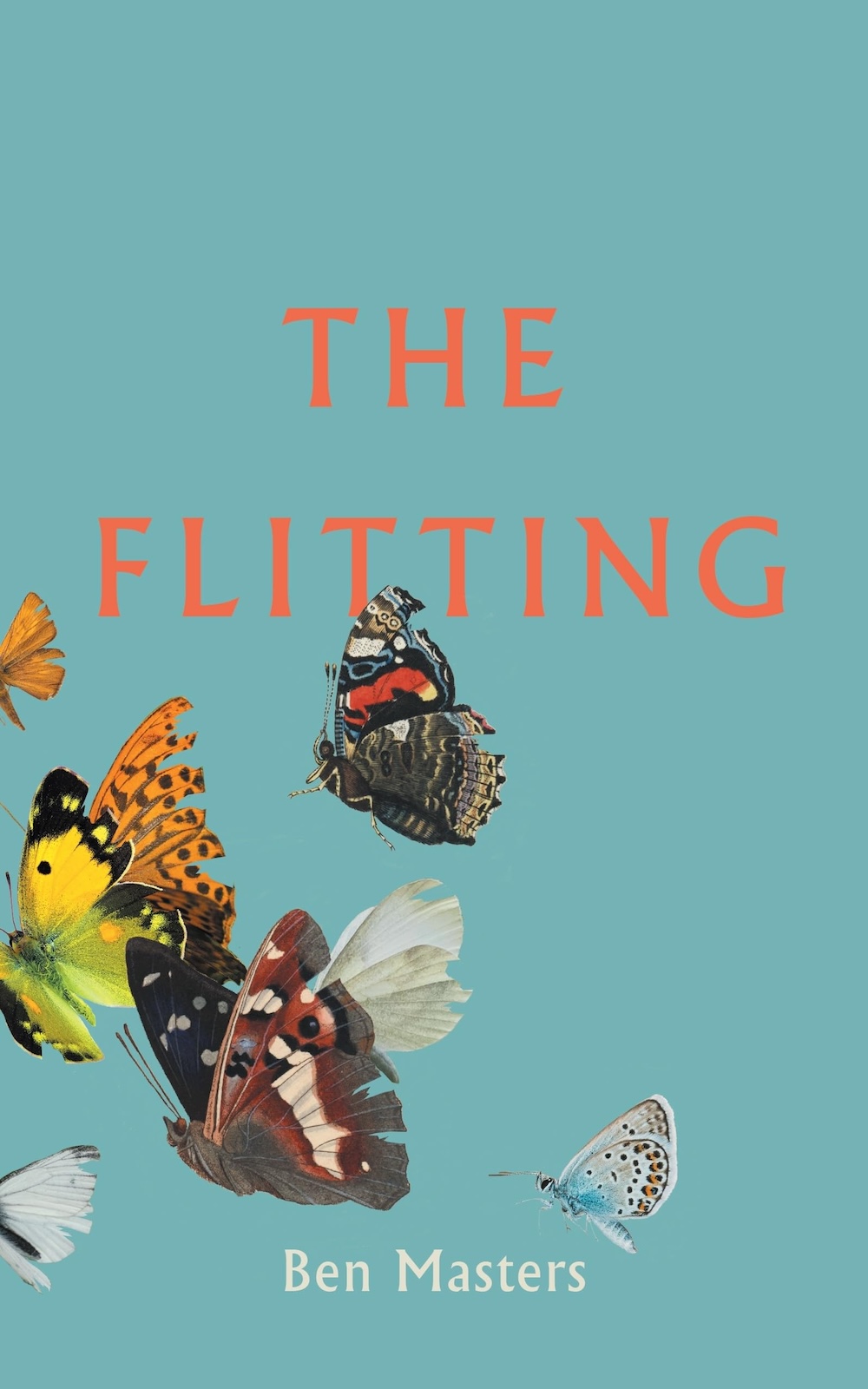Sue Brooks reviews Ben Masters’s memoir — a consideration of masculinity, memory, identity, generational differences, loss and continuation, told through the pursuit of our elusive native butterflies.

The excitement was there from the beginning. The dust jacket with the butterflies in the heavenly blue sky, the frontispiece photo of the little boy in the arms of his Dad on a beach somewhere. Dad looking like a rock-star with sunglasses. And the title poem by John Clare. I was hooked.
The year is 2020, the official start of Lockdown on March 23rd. Dad is in his sixties and Ben in his late thirties. After eight years of remission, cancer has returned, and Dad has a terminal diagnosis. The book opens with Ben in his study, his father’s ashes in a box on top of the bookcase, reflecting on all the things he wished he had shared with you when I had the chance.
They are alike in many ways, but not in their passions. Dad followed his own father towards shooting, poaching and hunting in the Northamptonshire fields and woods around his home. John Clare’s countryside. He had a lifetime’s knowlege of natural history and a butterfly collection worthy of a museum, none of which he could share with his family. Ben was drawn towards literature, and a career as a writer and teacher of Creative Writing. Butterflies were the perfect symbol for the change — the metamorphosis — in their understanding of each other. It became Ben Masters’s mission.
Could he search out and identify some of the butterflies in his father’s collection and offer it as a gift — a bounty that might in some way prolong Dad’s life? He does the research, and heads to the Dorset cliffs with Richard Lewington’s Butterflies of Britain and Ireland in his pocket, but fails miserably at the first attempt (Lulworth Skipper). He moves on to the iconic Purple Emperor in its stronghold in Fermyn Woods. Ah, the drama of seeing a Purple Emperor for the first time, but most of all in Fermyn Woods — the pantomime and the rapture. The writing about butterflies is superb. Their elusiveness, the constant movement, the long, hot afternoons with no sign of a Chalkhill or an Adonis Blue, and then, almost at the point of giving up, a flash of colour in a clump of gorse — in Ben’s case, a Silver Studded Blue and a photo he sends to his Dad, in bed at home. Yes, there’s no doubt. Well done xx.
He seeks out other writers. People he has known and admired for years — Angela Carter, Virginia Woolf, Zadie Smith, all of whom have strong connections with butterflies, but none more so than Vladimir Nabokov. He draws deeply on the novel The Gift where the narrator, Fyodor, is trying to find a way to write about his father after his death — the dreadful unknowability of the man he loves — and the realisation that his own writing might take him even further away. Fyodor gives up, but in the attempt, the Gift is revealed.
Ben reflects deeply on the cultural changes in masculinity over three generations. The grandfather, deeply scarred by his wartime experience, prone to violence; the father proud of being the head of the household, self educated in his love of the natural world, and the son, wondering what it means to be a good husband and father to his two young children. He picks his way through this with great honesty, ever-watchful of sentimentality. He questions his literary pretensions and easy dismissal of writers he knows nothing about. He wants to learn outside the academic Establishment. Above all, he wants to find a way of showing his Dad he loves him. The butterfly expeditions, under his father’s guidance, become the tribute (Gift) he was hoping for.
Time is running out. Dad is home from hospital and well enough for one last walk. It’s almost the end of the season for butterflies on the wing, but perhaps, a second brood Wood White? YES. They see one together, and rejoice. Dad says there might be a Red Admiral or a Painted Lady, and there’s still the possibility of a Clouded Yellow. They share the photos and the tally of that season. In his first year of what will become a lifelong passion for butterflies, Ben has the remarkable total of 33 (of only 59 species in the UK).
The final chapters are extraordinarily moving and I’m feeling very tearful, thinking about them. Enough to say, that Dad dies in a Northamptonshire hospice with the family around him, having carefully chosen the poems he wishes to be read at the funeral. ‘The Flitting’ by John Clare and one he has written himself. In the last chapter — a Coda — Ben describes the final Gift: but I won’t spoil it. You’ll have to read this brilliant book for yourself.
*
‘The Flitting’ is out now and available here, published by Granta (£16.14).